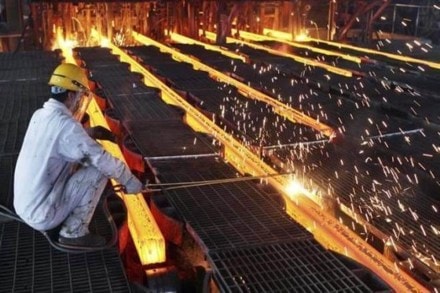India’s manufacturing activity grew at its fastest pace in eight months in October, as firms scaled up output in sync with a substantial upturn in new work intakes ahead of the peak festive season. The Nikkei Manufacturing purchasing managers’ index (PMI) rose to 55.9 in October from 53.7 in the previous month. An index reading of 50 or above suggests expansion and below it points at contraction. Manufacturing PMI has now grown for a fourth straight month after the first contraction in 11 months in June.
Fresh orders and factory output in October expanded at the strongest pace since March. New export orders, too, moved up at the fastest rate in three months. Companies resorted to massive input purchases to build inventory in anticipation of further improvement in demand, while business optimism hit a six-month high. This led to input costs increasing at the sharpest rate in 92 months, raising concerns about the sustainability of soaring corporate profits.
Pollyanna De Lima, economics associate director at IHS Markit that releases the PMI data, said: “With companies gearing up for further improvements in demand by building up their stocks, it looks like manufacturing activity will continue to expand throughout the third quarter of 2021-22, should the pandemic remain under control. Upbeat business confidence and projects in the pipeline should also support production in the coming months.”
Together with some other high-frequency indicators, such as a steady rise in inter-state trade in goods and services, organised retail sales and spurt in imports, the surge in manufacturing has lent credence to the notion that an economic recovery may be taking roots following the second Covid wave.
However, a lack of pressure on capacity, besides easing government guidelines around shift work, meant that employment continued to decline in October, although the rate of job shedding was marginal.
Although strong growth of both sales and production were noted in each of the three broad areas of the manufacturing sector, it was in intermediate goods that the sharpest rates of expansion were recorded, IHS Markit said in a statement.
Some firms passed a part of the extra cost burden on to their clients by raising product prices. However, vast majority of manufacturers left their fees unchanged, so, the overall rate of inflation was moderate.
